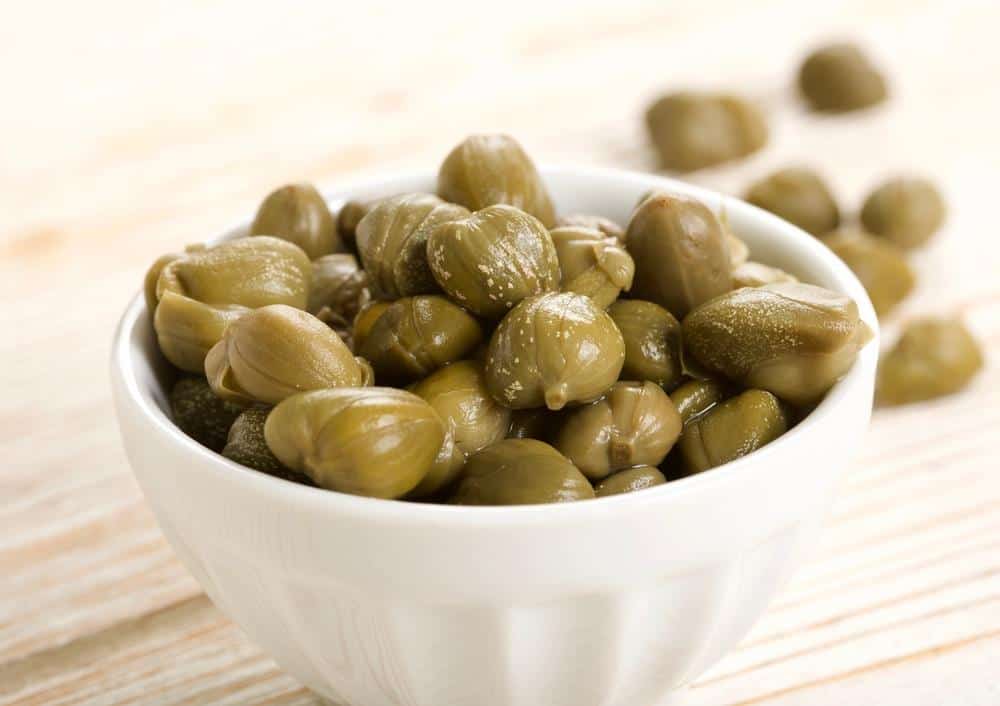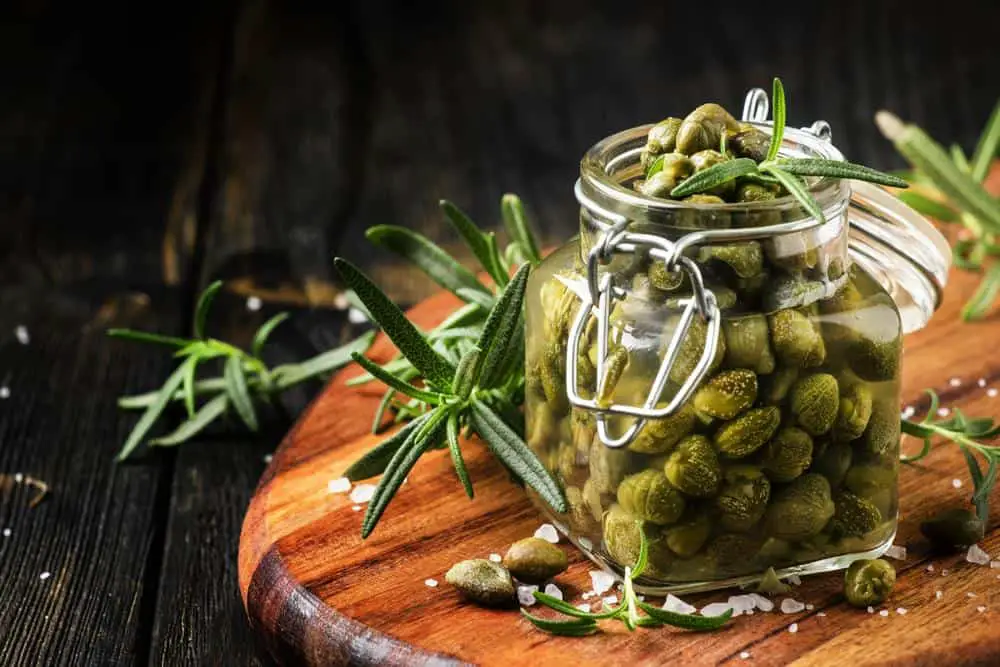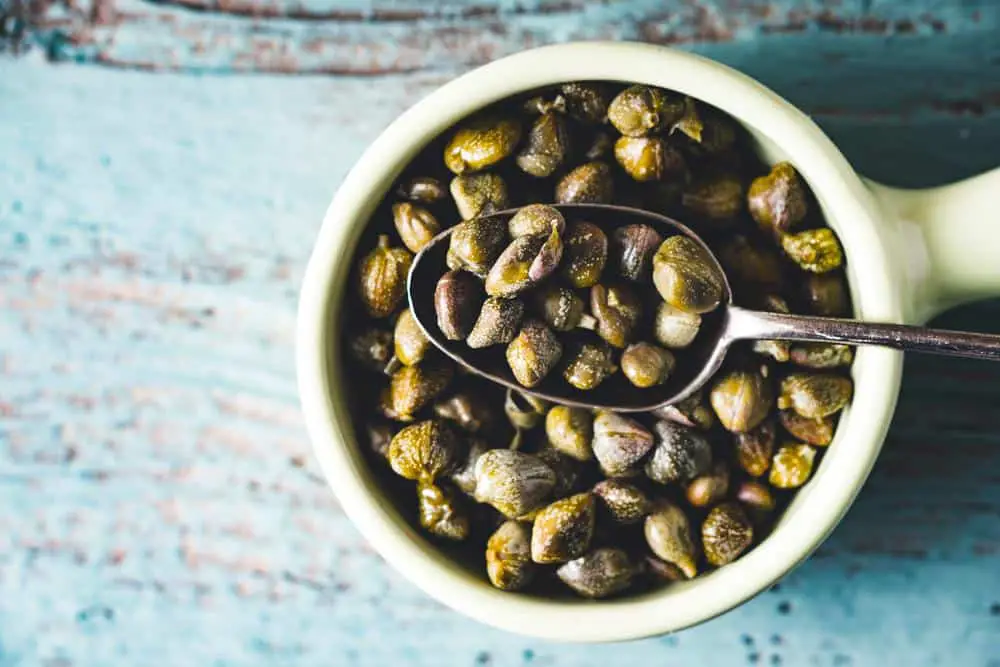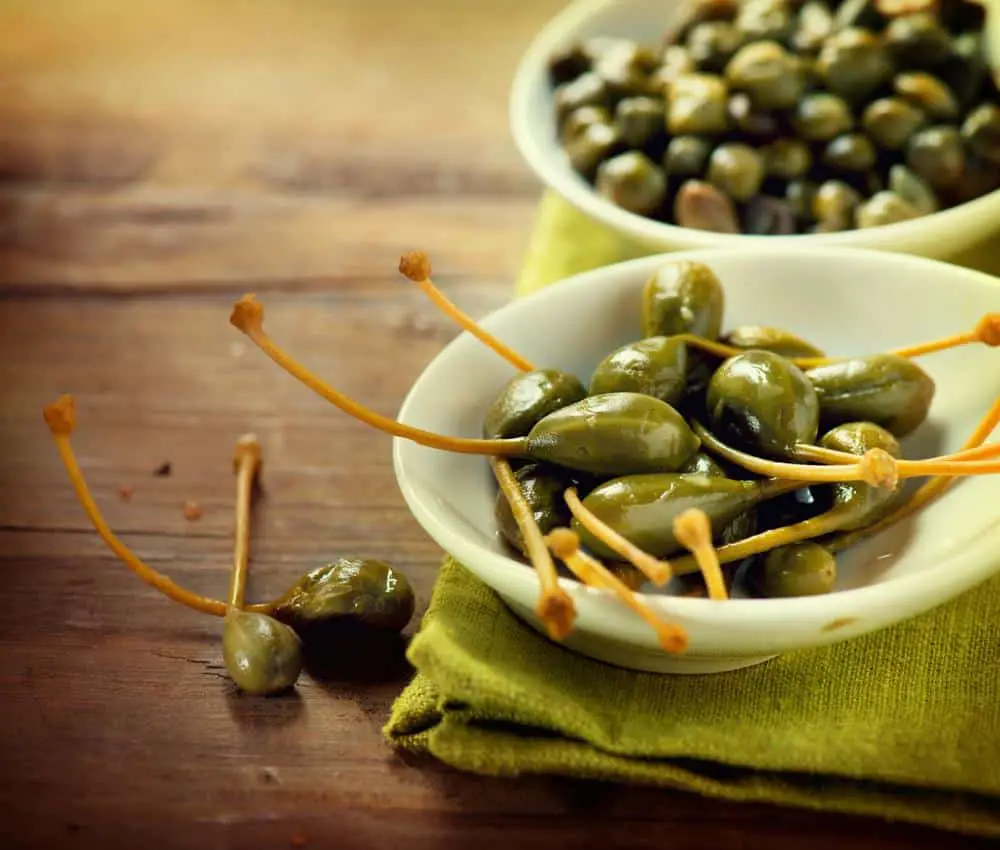Except you are a food specialist who spends most of his or her time discovering new fruits and ingredients out there, there will always be some names we hear and get confused.
This could be either because we have never heard of them but suddenly learned that they are “perfect for the body” or because we know them but find the means to use them so enervating.
Capers are definitely one of them, at least to many people. We see them and maybe get them unknowingly in a salad Nicoise but never know what use they are to us and why we should spend money getting some.
So if you are as curious as I am about these capers things, let’s get to know more. Take a sit, if you aren’t already sitting and read through with me.
What are Capers?

Capers with the botanical name as Capparis spinosa are the flowering buds of a plant.
This is how it works, the entire plant itself is called the caper plant, and it produces flowers which are purple and white in colour, this flowers can grow into very beautiful long wide steaks but later fall off when it gets to their due season.
After this happens, a fruit grows in its place, and that fruit is referred to as the caper berry. Caperberry is also eaten widely, but when you pick the bud from the caper plant rather than allowing it bloom into a flower, that is when you the tiny capers.
So in its entirety, it is simply the flower of a plant that is plucked as a bud.
Capers are quite pricey because of their harvesting process; all the capers sold are gotten through rigorous hand picking and drying before they are salted or brined then packaged and sold for use.
They are grown mostly in the Mediterranean.
How To Preserve Capers

So peradventure you happen to have seen a capers garden you have been watching and probably you have done a god job of nurturing them till you see some buds which were successfully harvested before any flowering could happen.
Or maybe you just look for a bush around your region and check for any wild capers growing there, yes! They grow like weeds so they shouldn’t be hard to spot if there are any around you.
There are different ways to brine your capers but I think going the easy way will give you about the same result as would any other longer process.
Firstly, keep your capers in water for about three days rinsing them twice a day, this is done to remove any impurities and lesson the bitter flavours.
You will need1/2 cup of vinegar, 1/2 cup water, 1/2 of caper buds and 1 tablespoon salt.
Make the brine mixture enough to cover up the whole capers, leave for about three to six days and taste, if it is has gotten your desired consistency and flavour, then get using.
It’s as easy as that, also note that capers only blossom in the summer for those going to pick wild capers.
What Do Capers Taste Like

Knowing what caper taste like is very subjective this is because capers usually take the taste of what they are cured with and or what they are cooked with.
Based on the opinion of random people, picked capers have a tangy, sharp, piquant, salty taste and smell too.
If other spices were added to the brine when pickling then you can have hints of the flavours as well. For instance, some people add peppercorns to their caper brine, this will definitely have a sort of pepperish mint taste along with the capers when you taste it.
If you happen to have been put off by capers because of the excessively salty taste as I have heard some people complain, it could be because there was no proper rinsing after opening.
When you purchase a jar of pickled capers, do well to wash them thoroughly before using them with your food especially if you will be sprinkling them over it. This should remove whatever excessive salty taste it has gotten from the pickling process.
Health Benefits Of Capers

These little buds provide more nutrients than you can imagine, during the ancient times dating back to thousands of years ago, capers were used for treating many ailments often relating to inflammation in countries like Greece.
Capers have high antioxidant qualities; this is evident in their rutin and quercetin, capers happen to be one of the largest carriers of rutin amongst all other plants and fruits you can find.
Rutin helps the body produce collagen which is an essential youth and body fitness chemical. Rutin also does a lot for the arteries and capillaries through aiding proper circulation and flexibility of the blood vessels.
Intake of rutin on its own from natural sources such as capers holds no risk, but there is a risk of overdose when taking rutin supplements.
Capers also has vitamin C, k, sodium and iron and Quercetin, on the other hand, has grand anti-carcinogenic qualities.
Pasta Puttanesca with Roasted Cauliflower
Put those capers to good use on a plate of pasta puttanesca from the Kitchen Konfidence, and that combined with cauliflower is simply amazing.
I also saw the part where they talked about the dish having all the ingredients for a good aphrodisiac, good news for some I guess, thank me later.
Don’t forget to rinse the capers properly to get rid of salt. For a video of the recipe, follow the link
Get cooking and enjoy
Finally!
With every tablespoon full of capers you get only two calories, just imagine that!
Thant knowledge and the addition of all the other qualities that capers have, what’s not to love?
Now that you know you can get them on your own if you live in a country that it is grown, get ready to pickle your own capers and don’t just keep them, cook with them.
Capers are so good that only a small quantity is perfectly capable of changing the entire flavour of the entire dish.

